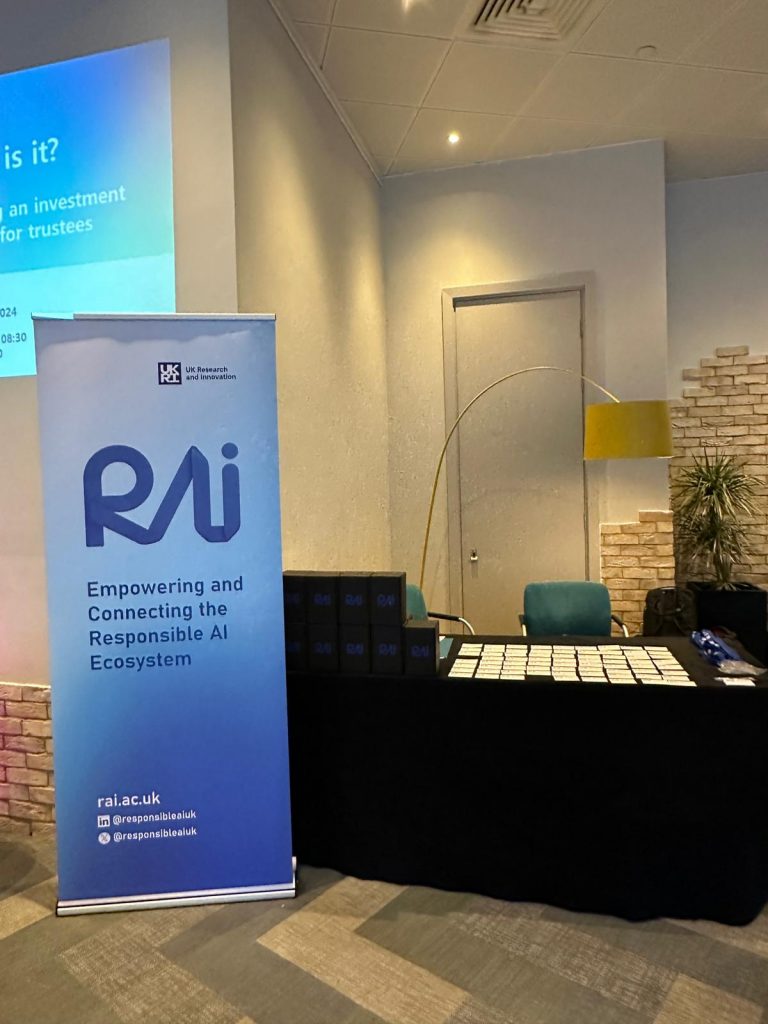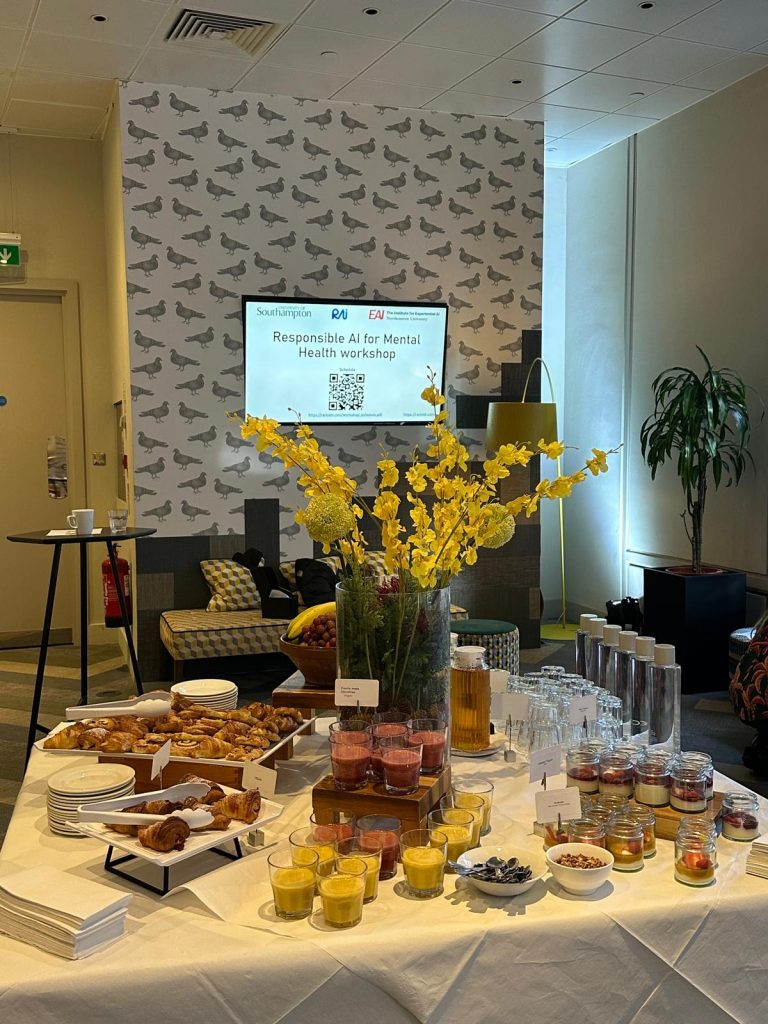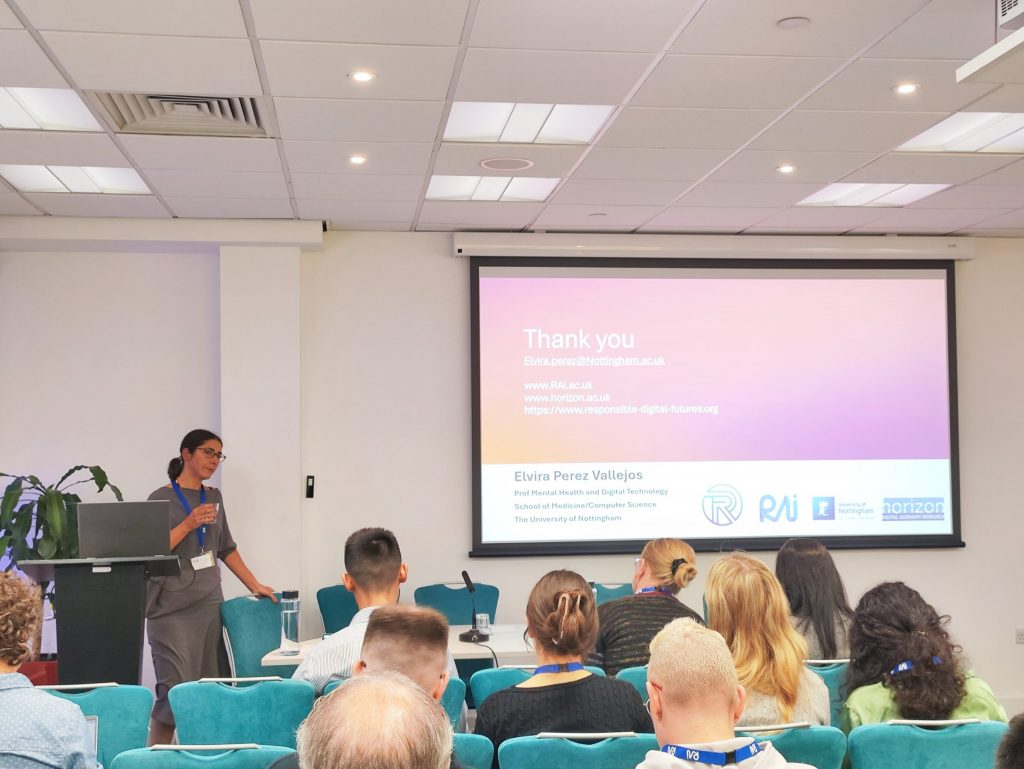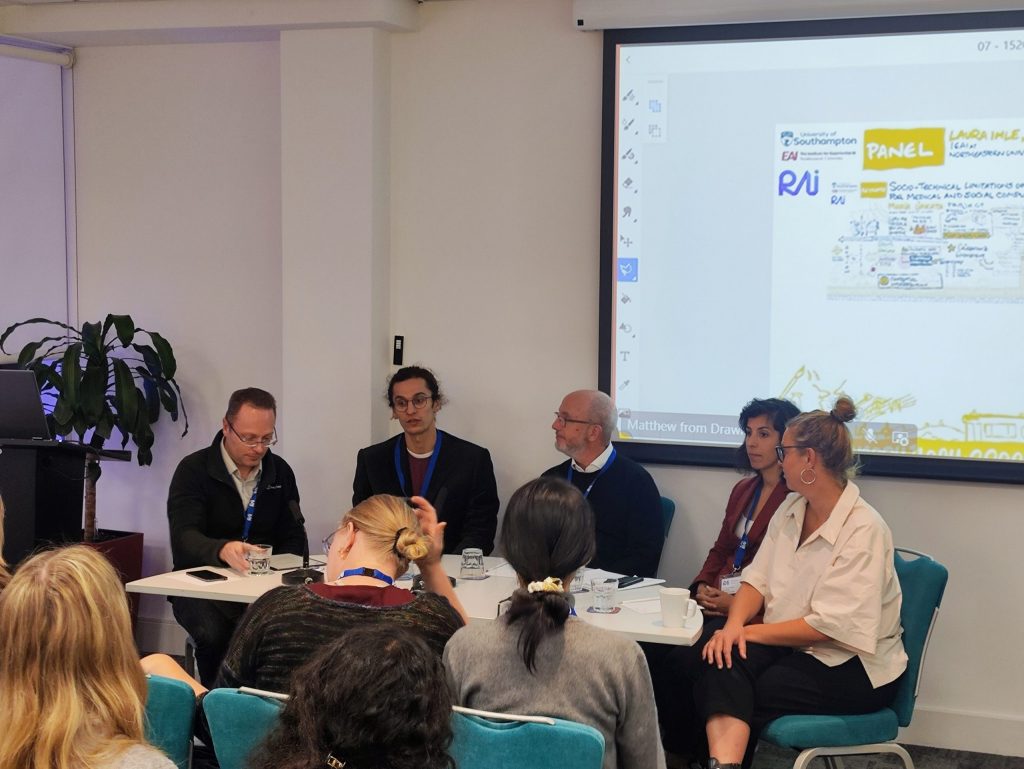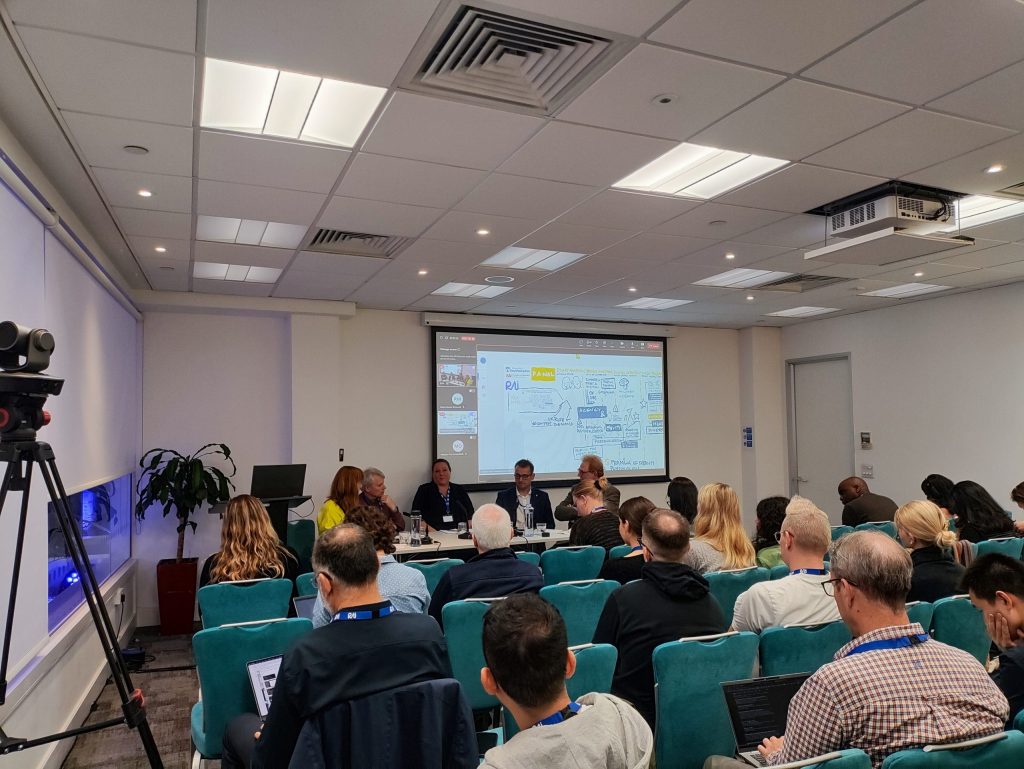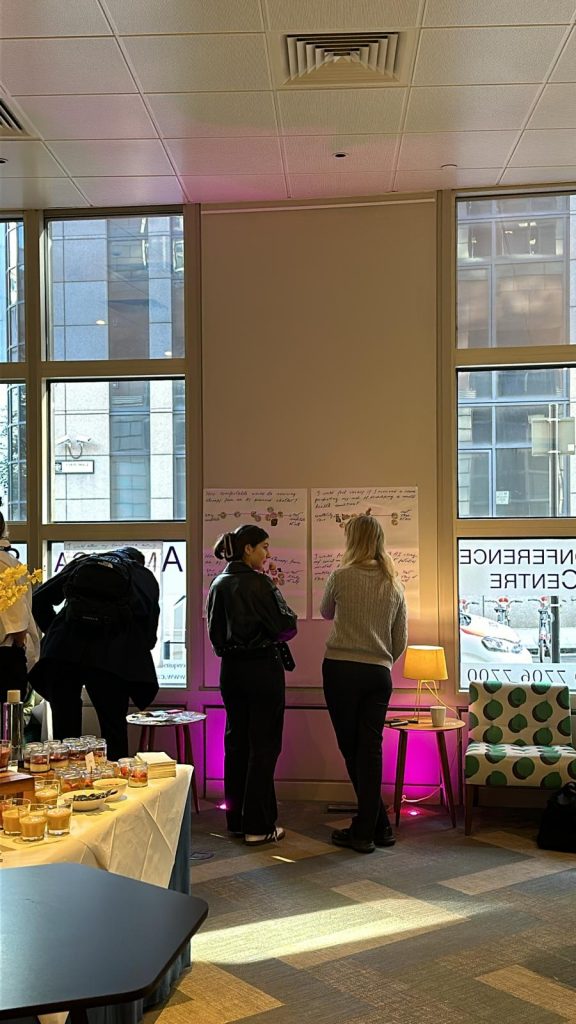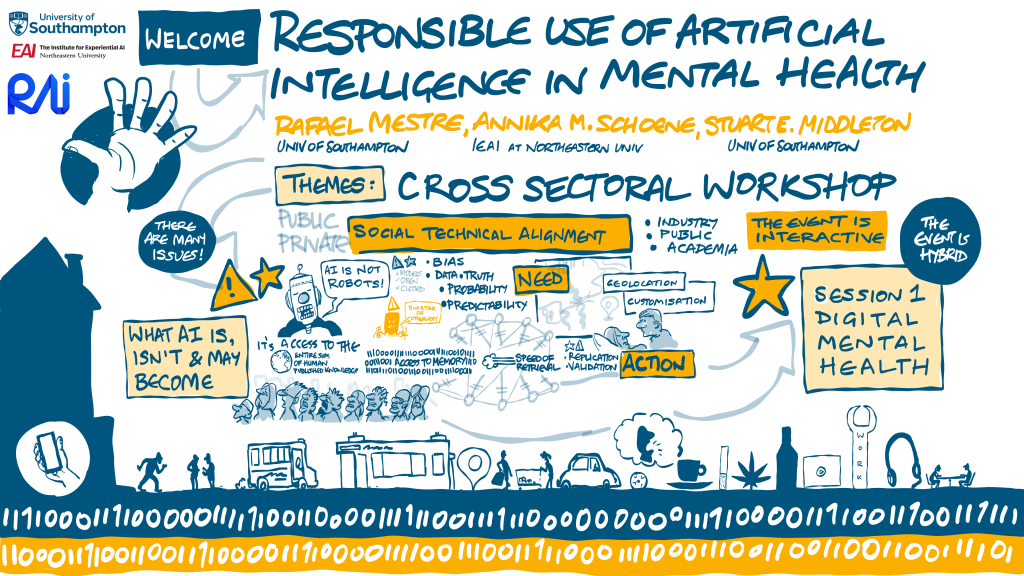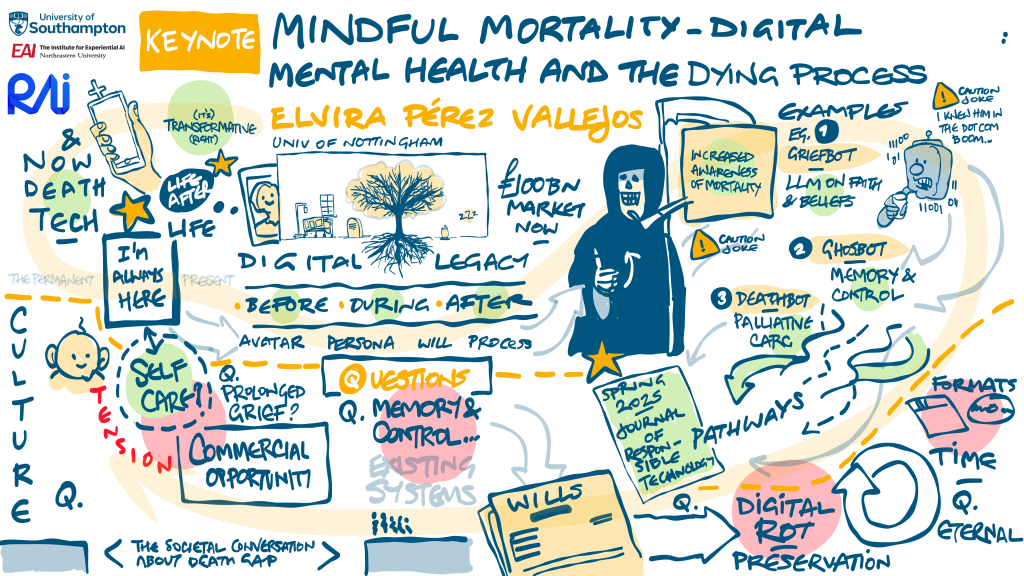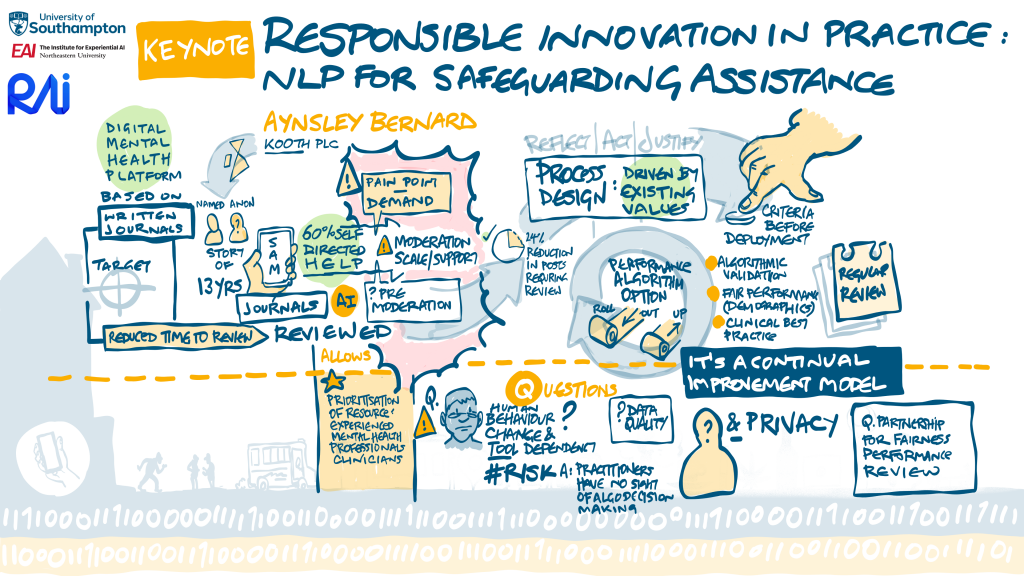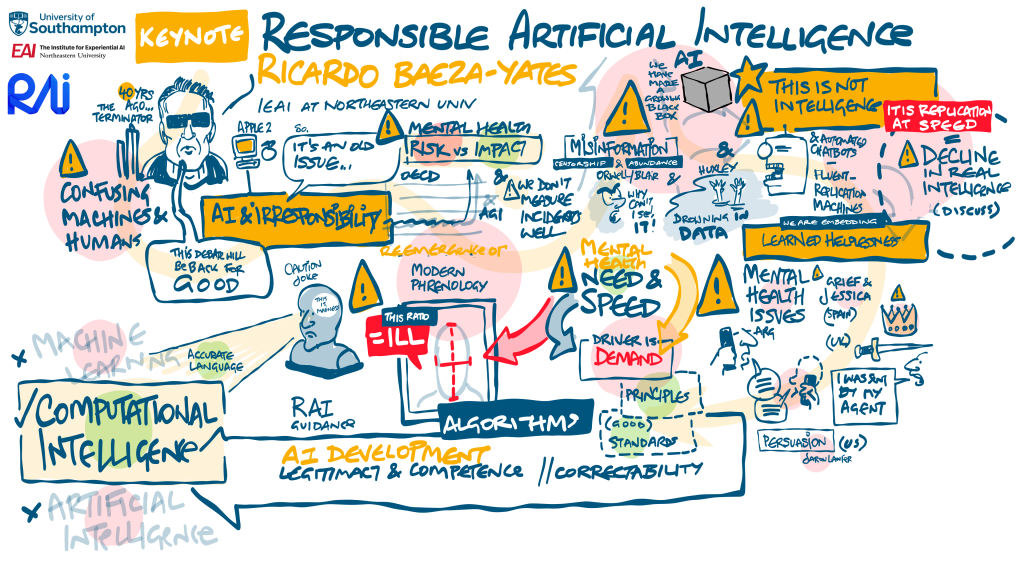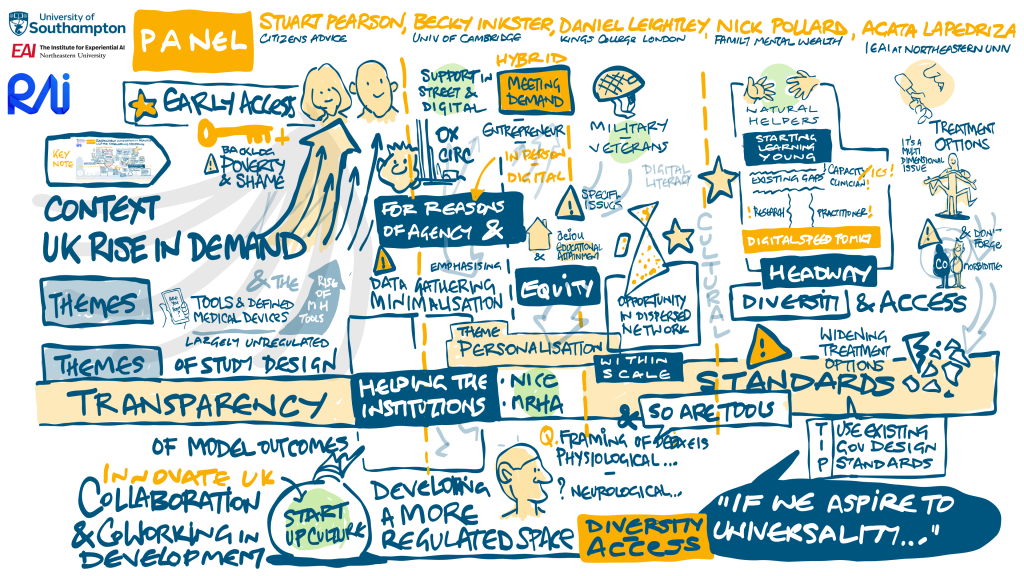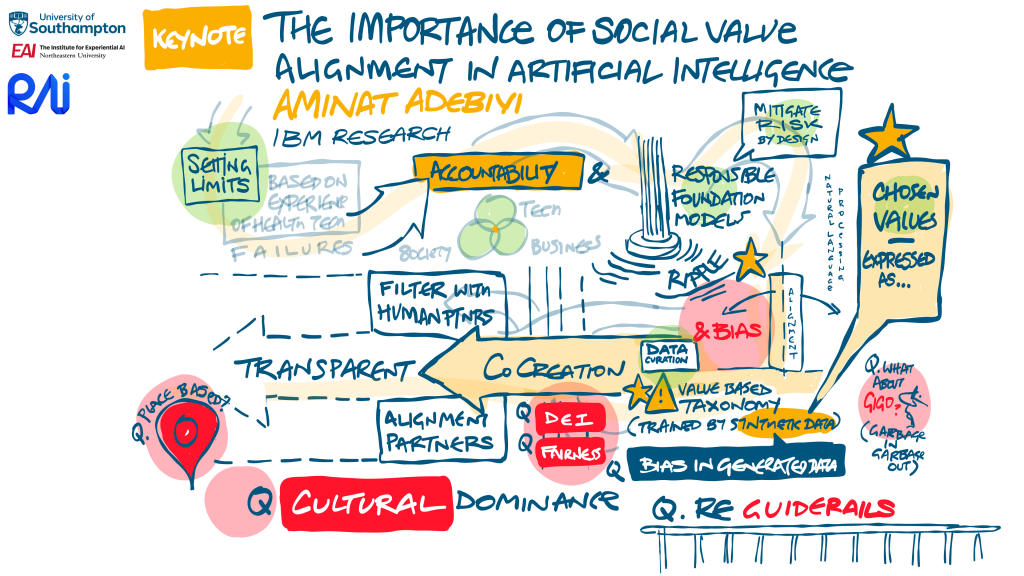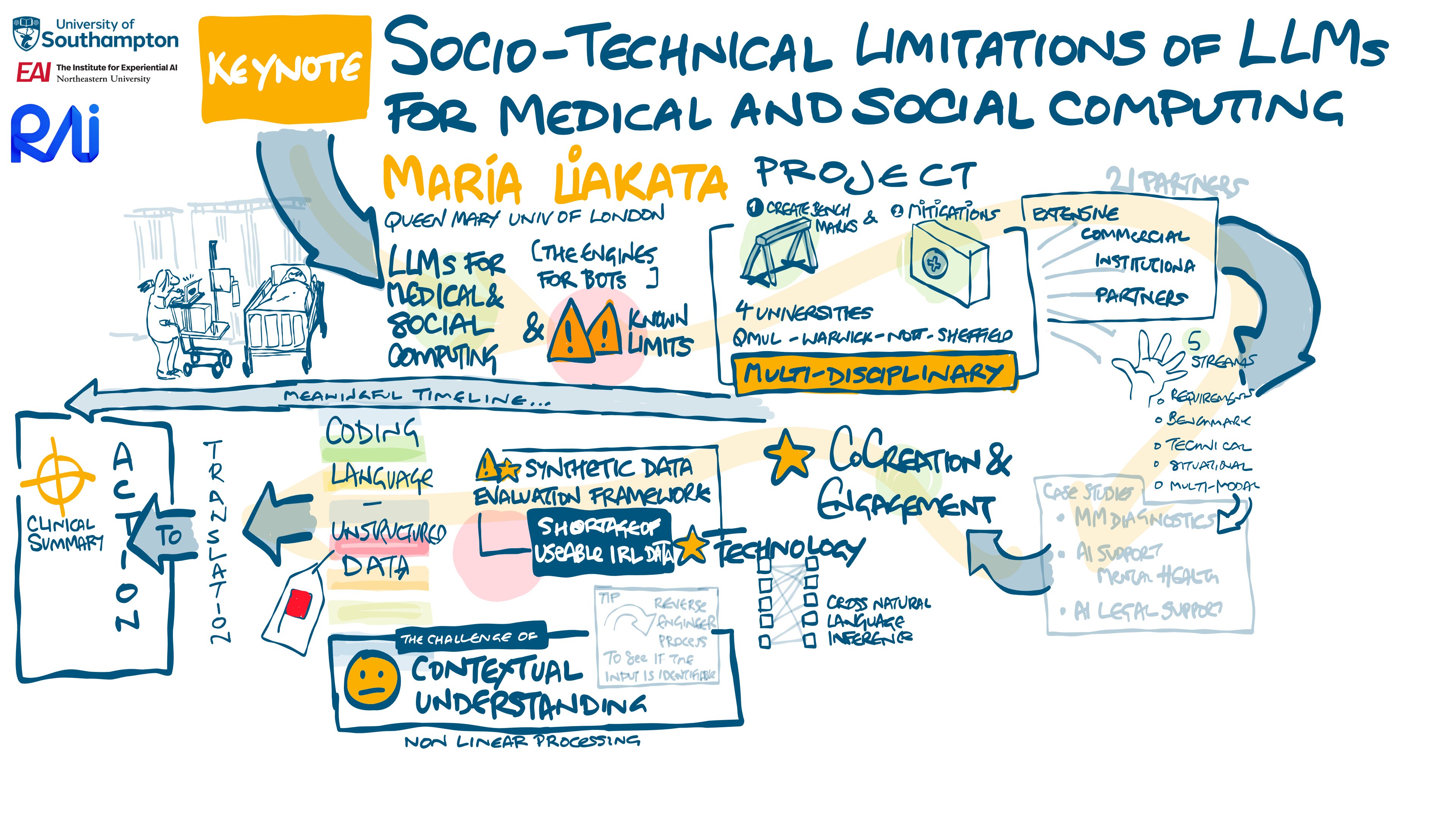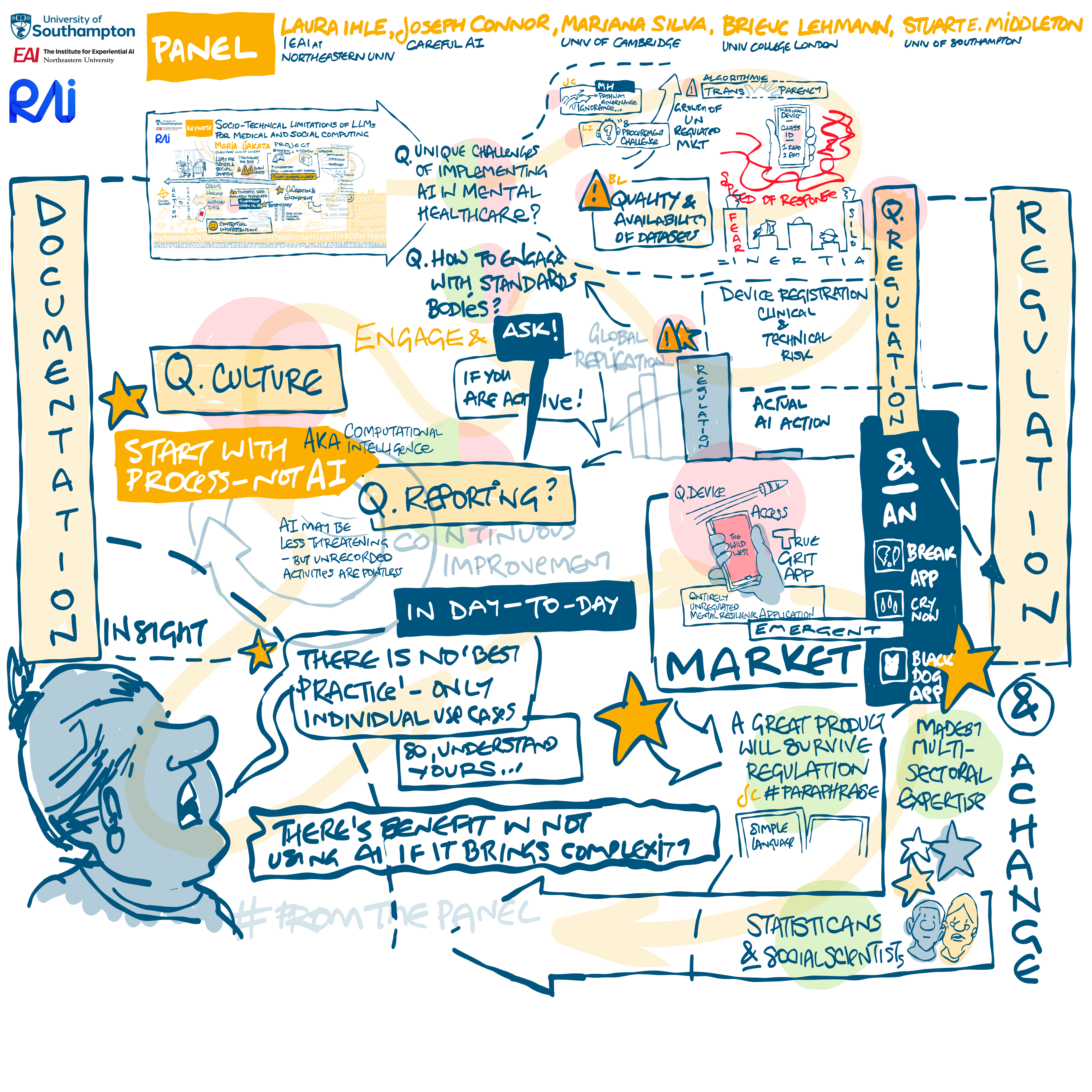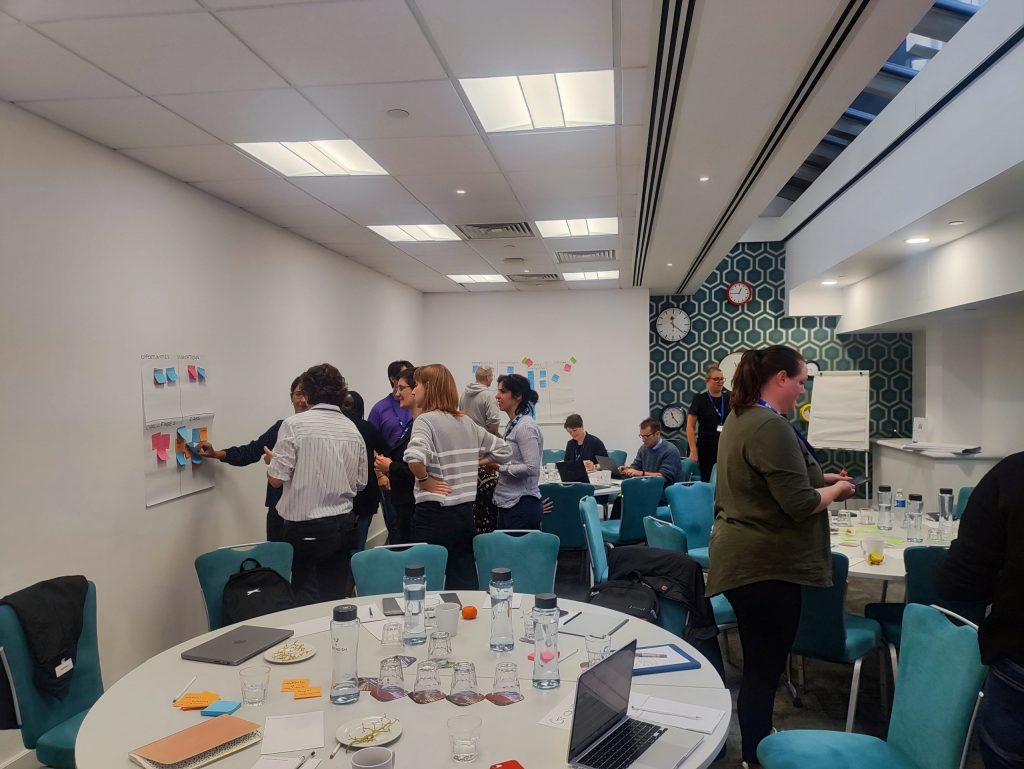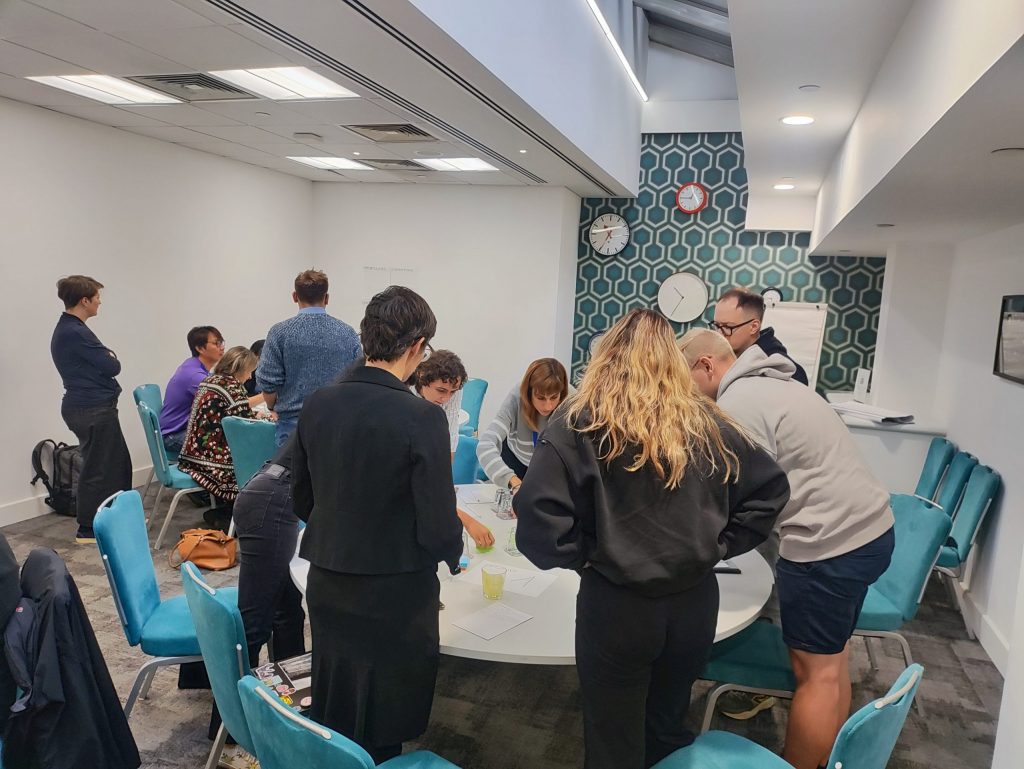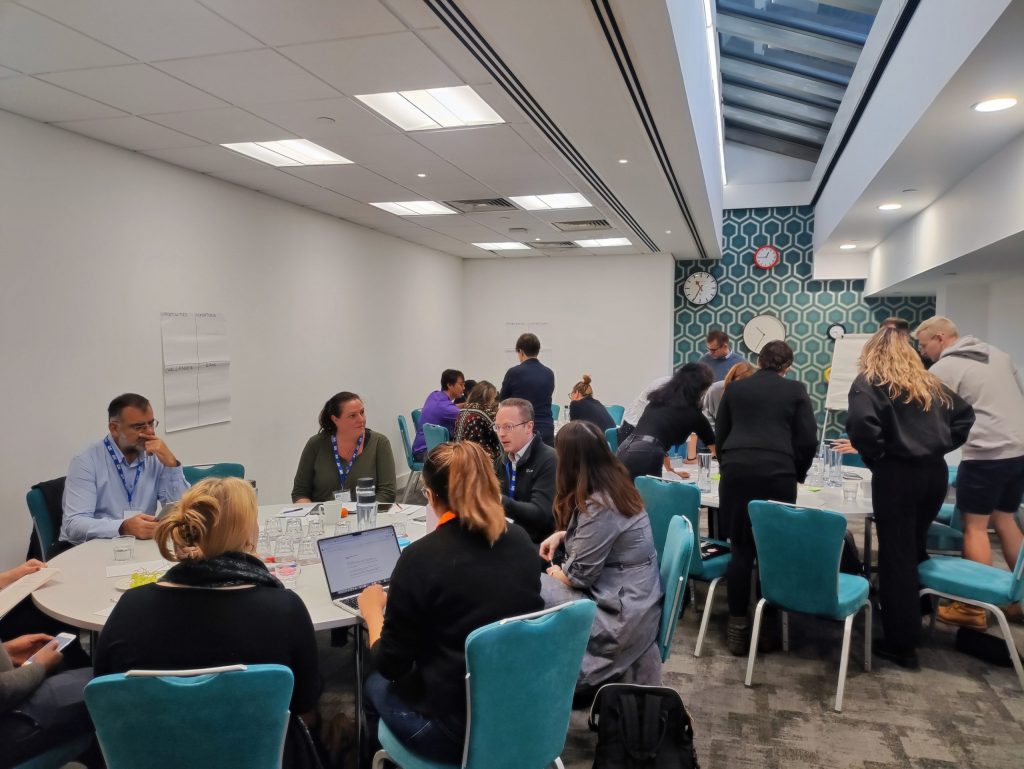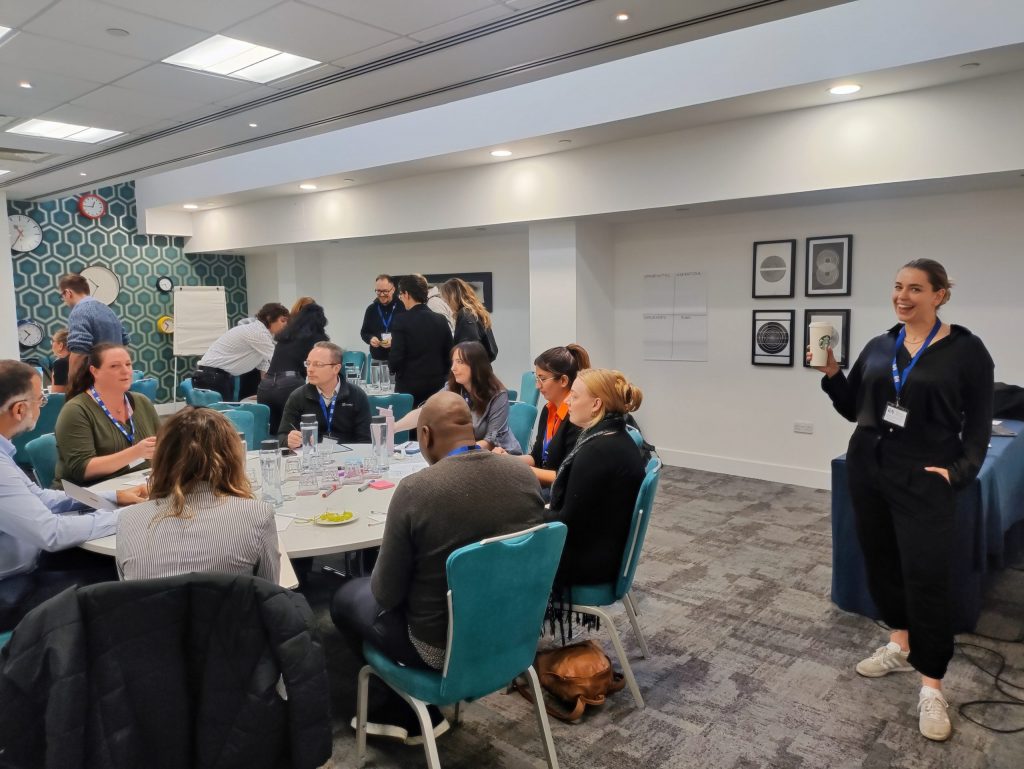“Responsible AI for Mental Health” Workshop: Outputs and Insights
The Responsible AI for Mental Health workshop was held on September 12th, 2024, at the America Square Conference Centre in London. This hybrid event brought together experts from academia, government, industry, and the third sector to discuss the responsible and ethical use of AI in mental health, aiming to inform future policy guidelines on the topic. It was co-organised by the University of Southampton and the Institute for Experiential AI at Northeastern University, with coordination by Dr. Rafael Mestre, Dr. Annika Marie Schoene, Dr. Stuart E. Middleton, and Prof. Agata Lapedriza. This event was one of the first activities from the International Partnership Grant RAI4MH, funded by Responsible AI UK (RAi UK) and with the support of the Centre for Democratic Futures and the Centre for Machine Intelligence of the University of Southampton/
We were pleased to have ~65 in-person attendees and more than 125 online participants from around the world. The event featured a diverse lineup of 15 international keynote speakers and panellists across two thematic sessions: “Digital Mental Health” and “Responsible Use of AI in Mental Health”. On the next day, September 13th, we continued with an invitation-only workshop, where experts discussed, through structured design-thinking activities, preliminary policy recommendations for the responsible application of AI in Mental Health. You can watch the recordings of the event on our YouTube channel and read the White Paper documenting our findings and preliminary recommendations:

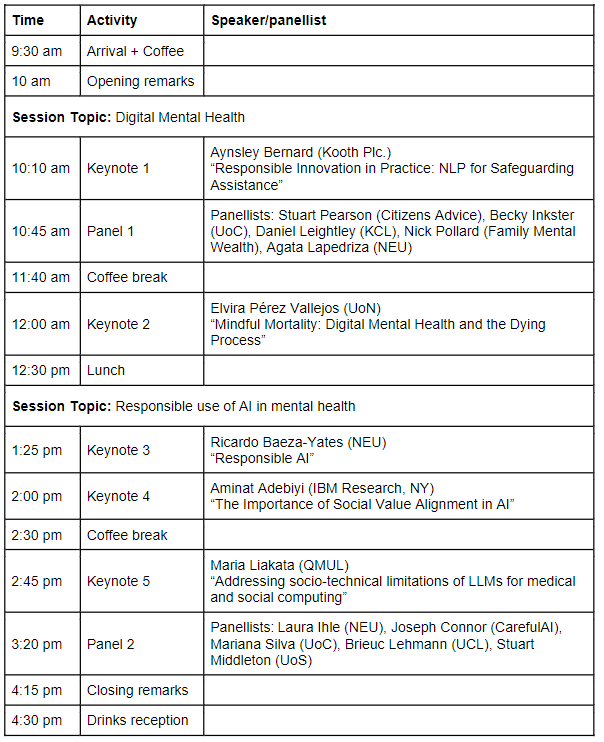
Morning Session: Digital Mental Health
After opening remarks by co-organiser Dr. Rafael Mestre, our morning session on “Digital Mental Health” was kicked off by Dr. Aynsley Bernard from Kooth Plc., a leading digital mental health provider that offers online counselling and support services for young people and adults. She discussed Kooth’s responsible innovation practices in digital mental health. This was followed by a panel featuring Stuart Pearson (Citizens Advice), Dr. Becky Inkster (University of Cambridge and self-employed), Dr. Daniel Leightley (King’s College London), and Nick Pollard (FamilyMentalWealth), moderated by Prof. Agata Lapedriza (Northeastern University and Open University of Catalonia). They discussed the future of digital mental health, emphasising the need for collaboration across fields for responsible development.
To conclude the session, Prof. Elvira Pérez-Vallejos from the University of Nottingham spoke about the application of digital tools for death and aging, highlighting important insights in this often-overlooked aspect of mental health care.ing our findings and preliminary recommendations:
Afternoon Session: Responsible Use of AI in Mental Health
The afternoon session on “Responsible Use of AI in Mental Health” started with an overview of responsible AI by Prof. Ricardo Baeza-Yates, Director of Research at the Institute for Experiential AI at Northeastern University. This was followed by Dr. Aminat Adebiyi from IBM Research NYC, who joined us online to discuss the importance of social value alignment in AI and IBM’s efforts in responsible AI.
Prof. Maria Liakata from Queen Mary University of London then spoke about the socio-technical limitations of large language models (LLMs) for social computing. The day ended with a panel featuring Dr. Laura Ihle (Northeastern University), Dr. Joseph Connor (CarefulAI), Mariana Silva (University of Cambridge), and Dr. Brieuc Lehmann (University College London), moderated by Dr. Stuart E. Middleton from the University of Southampton. They discussed the challenges in applying AI responsibly in the mental health sector, including ethical considerations and data-driven tools. Co-organiser Dr. Annika Marie Schoene closed the event with some thoughtful remarks.
We were also joined by the digital artist Matthew Buck from Drawnalism, who used live visual documentation to capture the key themes of the workshop in an engaging and accessible manner. His illustrations provided a unique visual summary of the discussions, making the content more dynamic and memorable for all attendees.
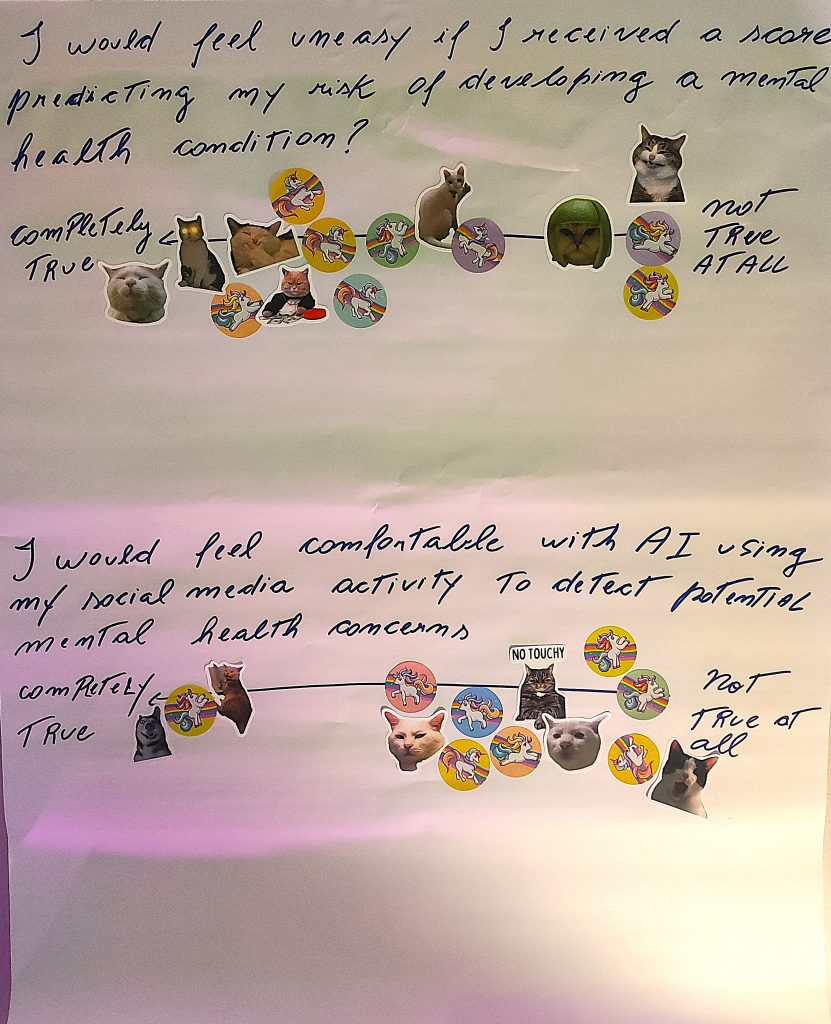
Participant Feedback
Gathering participant feedback and encouraging discussions were essential aspects of the event. We collected feedback through multiple methods, including Q&A sessions for both in-person and online attendees, in-person surveys using stickers on posters, and online polls. These methods allowed participants to help shape our next steps towards the responsible application of AI in mental health by sharing their own policy recommendations, as well as the risks, opportunities, and challenges they envisioned. Participants highlighted the need for more funding in mental health care, ethical frameworks, and market regulations, among other key points.
Feedback from participants emphasised the importance of collaboration among diverse sectors, ensuring ethical development, and implementing transparent AI practices. Many attendees noted the value of multidisciplinary dialogue and expressed interest in ongoing opportunities to engage in responsible AI practices for mental health.
Follow-up Event
On September 13th, a follow-up event was held with 25 participants from the main workshop, covering a wide range of expertise—from psychology to computer science—and representing academia, industry, the public, and the third sector. This smaller group session focused on drafting preliminary recommendations to guide the responsible development of AI technologies in mental health.
Using user-centered design principles, participants worked in groups using inputs from surveys collected the day before as a starting point. They engaged in four activities: grid analysis, prioritisation, scenario modelling, and drafting preliminary recommendations. These recommendations will be shared with the broader community soon in an official report.
